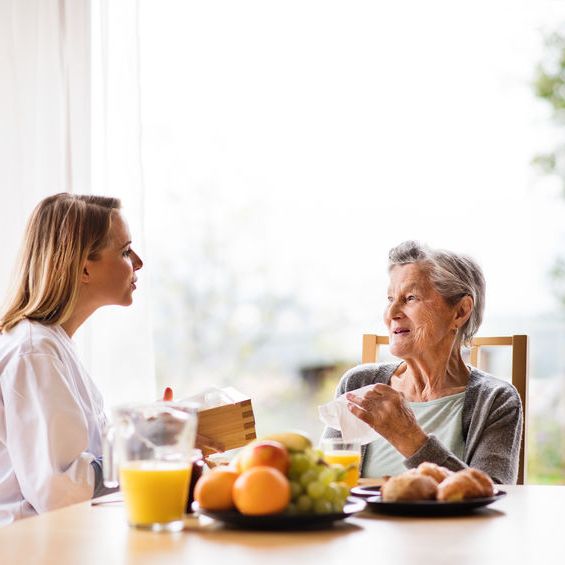iSavta | 25.10.2020

When you see your senior patient eating less and less food, it can be a red flag for many major problems. Of course, aging can result in a loss of appetite. But there are common causes of this so let us look into these.
Common Causes of Loss of Appetite
There are so many reasons for the elderly’s loss of appetite. It
- Slowing Metabolism - Aging and other diseases can cause this.
- Depression and Confusion - Depression can cause a person to lose sleep and eventually this also leads to loss of appetite.
- Lesser Activity and Exercise - With less physical activity, they might not feel tired and hungry. This can also mean that they cannot take care of cooking their food.
- Stress and Anxiety - The patient might feel anxious and disoriented thus making them not hungry or forget their meals.
- Cancer - Many kinds of cancer like liver cancer start with the loss of appetite as one of the symptoms.
- Dehydration - This can lead to dry mouth then the loss of appetite.
- Thyroid Disorders - The senior might have a problem with swallowing.
- Memory Issues like Dementia and Alzheimer’s
- Dental Problems
- Infections in the mouth or throat
- Trouble swallowing and chewing
- Parkinson’s Disease - This disease results in difficulty of movement. It may also require aided feeding.
- Side effects from medication - Some medicines and the combination thereof, might cause loss of appetite.
- Changes in the senses (taste and smell) - When we grow older, our taste and smell might fail us leading to loss of appetite too.
Best Ways to Help Your Patient
Check with the Doctor.
There might be a major reason for the loss of appetite. It could be a serious problem like cancer or Parkinson’s Disease or Alzheimer’s. It is best to consult with the doctor or doctors of the patient so you will be guided on how to deal with this situation.
Enjoy regular meals together.
Make your meals regular and try to gather the family around to eat meals. With regularity, the senior patient can always look forward to meals and that eating together with the family will be more social and enjoyable for everyone.
Serve exciting dishes and new recipes.
You can look into other exciting dishes and new recipes to have a better menu every mealtime.
Encourage frequent snacking.
They might not be hungry but frequent snacking is best for them so that their meals can also be supported by other food. Diabetic patients also need small meals to help keep their insulin levels in check.
Make the table design appealing.
The design of the table should be appealing and should be encouraging them to eat more or at least enjoy mealtimes more. Discourage clutter and unnecessary items though so as not to confuse them.
Get an appetite stimulant.
Check with the doctor if you can get these appetite stimulants and food supplements.
We have broken down the causes of the loss of appetite and the things that we might be able to do to help our senior patients. But always start with care and end with care in mind. All of these ways should be done with compassion and care.


